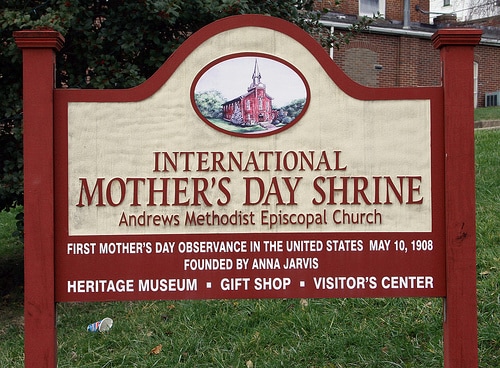 Why does a church exist? This week I’ve been trying to write about that as I read chapter 2, An invitation to Labor for Gods Harvest, from “Bearing Fruit” by Lovett Weems and Tom Berlin. But what actually appears on the screen is either, “why does a church excite”, or “why does a church exit?” Spell-check’s constantly hovering presence surfaced a very real set of underlying options. What about you, is your church exciting or exiting? Why does your church exist? Answers often start with what the church does and move to what the church hopes it is. For example, Tallyho UMC sponsors polo matches, hymn sings, children’s dance classes, etc… and is a welcoming community. What a church does with its time and resources reveals what it values most. These choices create the actual container, the form, of the church’s mission. The character of a church as it does these things, the quality of its life together, reveals how it experiences Christ. The character of a church reveals its theology, what it understands, or doesn’t, about Jesus. Vision is what your church exists to become. Recently, lay members of Belfast UMC spoke with no small sense of wonder about their transformative church supper experience. Now, I have heard church suppers called many things, but never transformative. A few years ago, under the strain of last minute calls for more casseroles and worry about how much money each supper would, or wouldn’t, bring in for the church’s budget, two finance people asked the really big question, “why are we doing this?” While the suppers had once been an exciting community project that built church community, now it wasn’t helping them become who they knew God wants them to be. So, remembering that they exist to people in the community around them with God’s love, Belfast UMC stepped out in faith. They (1) made doing suppers fun with a new creative teamwork and (2) stopped charging their guests. Now three times as many people attend and they receive as much in donations as they did from tickets. More importantly, they create a welcoming environment so that people are comfortable being themselves while brushing up against Christian community at its best. What does your church exist to do? What difference does it make? http://www.thecomicstrips.com/store/add.php?iid=155805 What does your church exist to be? How does it look like Jesus? Do you have a plan for becoming what you’ve glimpsed is God’s exciting desire for your existence? If you haven’t, you’re on the way to the exit. There is no autopilot that can take you there. Next week: “So that,” the two most powerful word for fruitful discipleship.
1 Comment
A few weeks ago, I attended the funeral of a woman who was the spiritual mother of many. Gwen White inspired through music, programs in children and spirituality, retreats, and spiritual direction. She inspired me to be patient with my wiggly young children in church. But what I admired most about her was way she could take an assortment of friends and craft a circle of discipleship that endured over years.
Going through records headed for the NE archives this winter, we came across other mothers in faith. There’s a pastoral record in which one still living sister in Christ, was rated (by her husband) in her role as the Pastor’s spouse. It notes she was cooperative with the total church program (!), who kept her house neatly, her person well groomed, and her children happy; that she was in generally good mental health and emotional balance. Rev. Alice Hart is merely mentioned in the notes that remain, but in her lifetime, she followed Christ’s call to become one of the first four women in the United States admitted to membership in an annual conference in the Methodist Church. They are sometimes called the “Four H’s” as all had last names beginning with “H.” She loved counseling, religious writing, and oil painting, besides her own two children, and the children of God she nurtured in the many churches she served. There are notes on paper that remember Rev. Kathleen Weed, beloved and creative MidMaine Pastor, early friend of Mechuwana, ordained an elder in 1949 by Bishop John Wesley Lord, but not able to become a clergy member of the Maine Annual Conference until 1957, when the prohibitions against women was lifted. (She was born in Avon, Maine where the original drafter of the Discipline’s restrictive rules was raised over a century before.) “She was really an expert in the leading of worship techniques, very good in leading the people in experiences of reverence and devotion.” remembered Rev. Ed Allen. In their book, “Bearing Fruit: Ministry with Real Results,” Lovett Weems and Tom Berlin trace the fruit of God’s expanding reign, the fruit of righteousness, and the fruit of justice in Scripture that these faith mothers loved dearly enough to share with others. “….God calls the covenant people to live lives of fruitfulness,” Lovett and Tom write, “We are to labor for the advance of God’s reign for righteousness to be normative to the human character, and for justice to bless everyone. Just as in the past, God intends for the covenant people of today to be fruitful and make disciples in response to the grace we know in Christ Jesus.” I have been blessed to serve in churches where these women, lay and clergy, walked before me. Each of them lived the biblical mandate for fruitfulness in their life and work. They planted, they tended, they pruned. The resistance they faced takes other forms in the church today. Each of them found ways to treat resistance as creative tension, holding true to God’s vision, pruning prejudice, pruning unfruitful practices, pruning anything within themselves that was not life giving. May we be inspired to do the same, by the breath of the same living Christ Spirit that kissed the world through their lives. In God’s Grace, Karen Our gardens are waking up! Garden centers are putting out trees and vines to be planted. Last weekend I got into a mouthwatering conversation anticipating Stevenson’s abundant strawberry patches.
Churches are throbbing with Spring energy. Readfield UMC just opened their doors for newcomers to get to know various organizations and opportunities in their community. Bolster’s Mills, Brunswick, and Highland Ave. have built community collaboration with auctions to support mission efforts. Belfast, Auburn, and Brunswick hosted last weekend’s Resource days in which 54 people, representing 22 churches, equipped themselves with Appreciative Inquiry and Asset mapping tools. We hope you’ll send short articles about what goodness is budding in your church so that others can learn and be inspired! From Genesis 1: 11: then God said, “Let the earth put forth vegetation: plants yielding seed, and fruit trees of every kind on earth that bear fruit with the seed in it.” And it was so. To Revelation 22:2, on either side of the river is the tree of life with its twelve kinds of fruit, producing its fruit each month; and the leaves of the tree are for the healing of the nations, and including what protestants call the apocryphal books, the NRSV bible translation mentions “fruit” 293 times. In the New testament, the fruit of Mary’s womb grows up to speak of the fruit of the spirit, fruits of discipleship, fruit that feeds minds, bodies and souls with the kindom of God. As we move toward the celebration of Pentecost, festival of fruits, I invite you to look over my shoulder as I read and reflect on “Bearing Fruit: Ministry with Real Results” by Lovett Weems and Tom Berlin. If you pick up the book and read along, you may be challenged, as I am, by the introduction’s list of excuses in seasons of unfruitfulness. Have you ever thought (as I have): ”I am not called to be effective. I am called to be faithful.” ”I am called to a ministry of presence.” “You have to understand where we are in our life cycle as a congregation.” We ARE called to be faithful. Faithfulness forms Christ like character in us that longs to by conduits for the fruitfulness of God’s reign. We ARE called to ministry of presence with others as Christ’s love flows through us. This does not mean that we are to ignore Jesus’ mandate to grow as disciples and invite others to grow with us. When church becomes more about helping each other feel better than finding the inner strength breathed in by the Spirit, we are crippling, rather than healing, one another. It IS useful to know where our church is in its life cycle, not for avoiding decision making, planning, and implementing, but so that we who are alive on Christ’s vine may bear what God is giving us to bring to fruition. Lovett and Tom write, Fruitfulness is vastly different from what the world regards as success. Fruitfulness has as its goal not personal advancement, or acclaim but the advancement of God’s reign on earth. It seeks to shape the life and work of the congregation through a shred passion for its mission. Let’s plan for a Pentecost of epic proportions. Perhaps this year’s celebration will be when you lead your congregation in committing to a fruitful future, faithful to discover and live the plans God has for you. As you make plans for sharing the love of our living Christ, let me know how it’s going and how Lori and I can support you. We have tools and resources for every season and step of the way. Next Week: Chapter One: A Biblical Mandate for Fruitfulness. For this reason, since the day we heard it, we have not ceased praying for you and asking that you may be filled with the knowledge of God’s will in all spiritual wisdom and understanding, so that you may lead lives worthy of the Lord, fully pleasing to him, as you bear fruit in every good work and as you grow in the knowledge of God. -Colossians 1:9-10 (NRSV) |
Karen L MunsonA pastor and artist, I'm wondering while I'm wandering through God's marvelous creation. Archives
March 2020
Categories |


 RSS Feed
RSS Feed